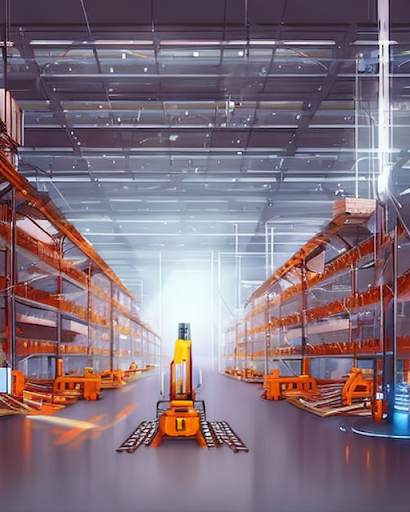How Artificial Intelligence can Revolutionize Logistics and the Supply Chain
- giovannirodriguez24
- Feb 21, 2023
- 3 min read

Artificial intelligence (AI) is transforming the way logistics and supply chain management operate. By using machine learning and advanced algorithms, AI systems can analyze vast amounts of data in real time, predict demand, optimize routes, and reduce costs. In this article, we will explore the impact of AI on logistics and supply chain management and how it can revolutionize the industry.
Improving Efficiency:
One of the most significant ways that AI is changing the logistics and supply chain is by improving efficiency. With real-time data analysis, AI can optimize routes, reduce delays, and improve delivery times. For example, AI can analyze traffic patterns, weather conditions, and road closures to create the most efficient delivery routes. This not only saves time but also reduces fuel consumption and carbon emissions. By using predictive analytics, AI systems can forecast demand and supply, reducing inventory costs, and ensuring that goods are available when and where they are needed. This is especially important for industries like retail and e-commerce, where demand is highly variable and the timing of deliveries is critical.
Transforming Warehouse Management:
AI is also transforming warehouse management. With autonomous vehicles and robots, goods can be moved and organized more quickly and accurately, increasing productivity and reducing errors. For instance, robots can be used to pick and pack items, reducing the need for human labor and speeding up the process. AI can also be used to improve inventory management by tracking the movement of goods in real time, reducing the need for manual inventory checks. In addition, AI-powered drones can be used to perform stocktaking and other inventory-related tasks, reducing the time and resources required for these tasks.
Supply Chain Transparency:
Another way AI is changing logistics and supply chain management is by enhancing the visibility of the entire supply chain. By monitoring all stages of the supply chain, AI systems can identify and resolve bottlenecks, predict potential disruptions, and ensure that products are delivered on time. This improved visibility also allows for greater collaboration between different stakeholders in the supply chain, improving communication and reducing errors. For example, a manufacturer can use AI to track the progress of a shipment from its factory to the end customer, providing real-time updates to all stakeholders. This can help to identify and resolve any issues that may arise, such as delays or quality control issues.
How are companies using it:
Real-life examples of how AI is used in logistics and supply chain management include Amazon's use of AI-powered robots in its warehouses to move goods. These robots use computer vision and machine learning algorithms to navigate through the warehouse, avoiding obstacles and picking up items for delivery. Amazon also uses AI-powered drones for last-mile delivery, allowing them to deliver packages to remote locations or in areas with heavy traffic. In addition, UPS uses machine learning algorithms to optimize delivery routes and reduce fuel consumption. By analyzing data on delivery locations, traffic patterns, and weather conditions, UPS can create the most efficient routes for its drivers, reducing delivery times and fuel costs.
In the airline industry, airlines use AI to optimize flight schedules, reduce delays and cancellations, and improve the passenger experience. For instance, airlines can use AI to predict and prevent mechanical failures, reducing the number of delayed or canceled flights. AI can also optimize flight schedules based on demand, reducing the number of empty flight seats and improving profitability. Additionally, AI-powered chatbots can be used to provide passengers with real-time updates on their flights, reducing the need for human customer service agents and improving the overall customer experience.
Conclusion:
Artificial intelligence is transforming logistics and supply chain management in significant ways. By improving efficiency, enhancing visibility, and reducing costs, AI is changing the way products are moved and delivered around the world. With the ability to analyze vast amounts of data in real time and make decisions based on that data, AI is becoming an essential tool for the logistics and supply chain industry. As technology continues to evolve, we can expect AI to play an even more significant role in logistics and supply chain management in the years to come.





Comments